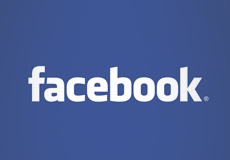Facebook Bolsters Ad Efforts, Looks to Compete with Google
March 6, 2013
Slowly but surely Facebook is developing and understanding its own strengths regarding its ability to compete within the online advertising world. And the social networking giant is actively looking for ways to gain more ground on the online ad powerhouse that Google has become. But the problem remains, how does Facebook prove its value to online advertisers?
 “It has always been tough for advertisers to determine the value of a ‘Like.’ They speak a unique language that includes concepts like ‘gross ratings points,’ ‘reach’ and ‘frequency.’ They also want to know how many times their ads ‘touch’ potential customers and then determine ‘attribution’ for the final impact on sales,” reports the Wall Street Journal.
“It has always been tough for advertisers to determine the value of a ‘Like.’ They speak a unique language that includes concepts like ‘gross ratings points,’ ‘reach’ and ‘frequency.’ They also want to know how many times their ads ‘touch’ potential customers and then determine ‘attribution’ for the final impact on sales,” reports the Wall Street Journal.
How can Facebook and other online media companies demonstrate to advertisers that even if a banner ad doesn’t get clicked on, it’s still useful? “No one actively engages in a TV commercial, magazine ad or billboard,” explains the article. “But seeing them keeps a brand in mind. All those different media get a share of the credit — and a share of ad budgets — when consumers buy a product. It is hardly an exact science. And yet, when it comes to online advertising, advertisers demand more proof that their ads are leading directly to sales.”
That’s one reason why Google does so well in the field; it is easy to determine the search engine’s impact on sales. Conversely, “Facebook’s challenge is to demonstrate to advertisers that it deserves a lot more credit than it is getting,” writes WSJ.
In an effort to do just that, Facebook bought online ad technology company Atlas from Microsoft last week. That company’s technology “can be used to serve online ads across a wide variety of websites. If it gives Facebook a more expansive view of online ads that users see and sales that occur across the Web, the social network can give advertisers a better picture of sites beyond Google that are responsible for driving sales.”
But Facebook does have Google beat in one area. It has more access to people’s personal data, provided by the consumer to the social network. So while Google has to make educated guesses on age, name, gender, etc., Facebook knows those things for sure.

No Comments Yet
You can be the first to comment!
Leave a comment
You must be logged in to post a comment.